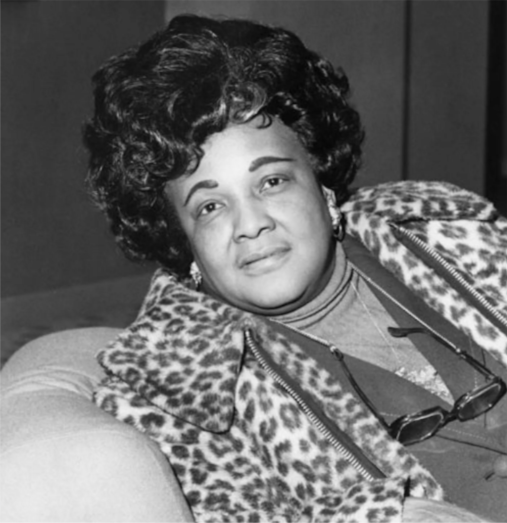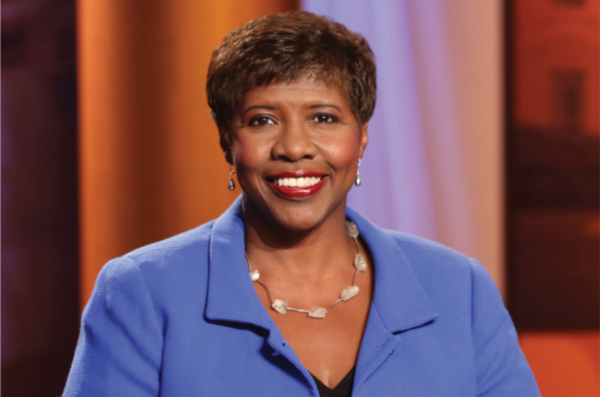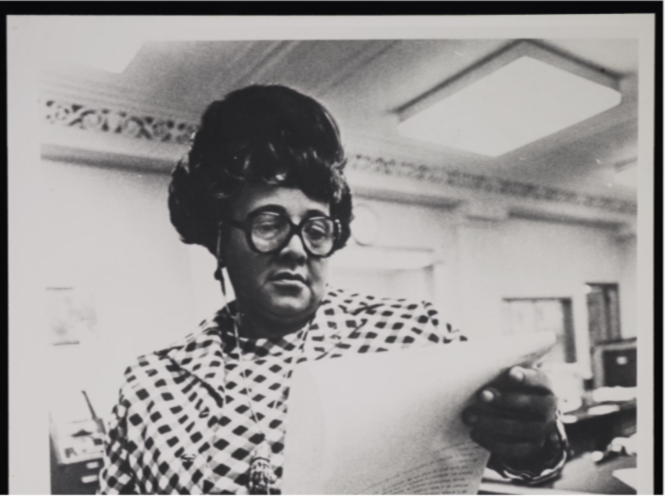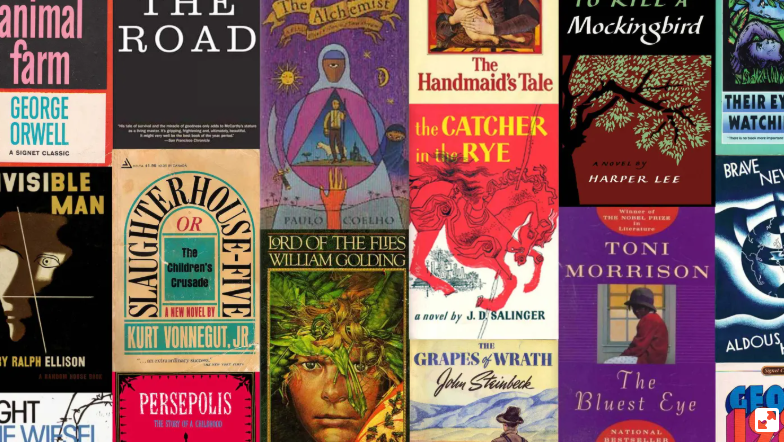One cannot deny that media of all forms has changed the dynamics of our world. Although some of this can be attributed to advances in technology, it doesn’t entail the entire story- the journalism industry and those who worked to shape it into what it is today are the missing pieces of this puzzle. In honor of Women’s History Month, this article will focus on 3 Black Female Journalists who dedicate(d) their lives to ensure consumers, like us, are getting a high-quality product.
Ethel L. Payne
Ethel, deemed the First Lady of the Black Press, was born in 1911 in Chicago Illinois. When she was 37, she left her home city to work for the Army Special Services club. As she witnessed the Korean War, she kept a diary where she wrote about the mistreatment and refusal to desegregate African American troops. Her pieces were sent to the Chicago Defender, a paper for African-American communities. Her articles gave a new perspective to the war, but that didn’t stop many from saying her writing was too blunt. As a writer for the Defender, she touched on topics that weren’t widely discussed, such as the struggles single mothers faced. She moved to DC a few years later and became the first African American woman to join the White House Press Corps. She asked President Dwight Eisenhower contentious questions regarding the Civil Rights Movement- he even refused to call on her for the remainder of his presidency. Payne made strides by reporting on Civil Rights activists Rosa Parks and Dr. Martin Luther King Jr and writing a multi-part series featured on the Defender. In 1970, Payne became the first African American to appear on a national network as a radio and television commentator- she worked for CBS from 1972-1982, continuing to make her mark in the world of journalism. She passed away in 1991, yet her legacy was relatively unknown. The contributions she’s made to journalism with her advocacy, questioning, and straightforwardness will never be forgotten.

Robin Roberts
Robin Roberts was born in Tuskegee, Alabama in 1960. She attended Southeastern Louisiana University where she studied communications and was a part of the Women’s Basketball team. She began broadcasting in 1983 as a sports anchor for WDAM-TV in Hattiesburg, Mississippi. She moved to Tennessee and Georgia within the next 7 years, where she continued to thrive as a sports anchor. In 1990, she started working for ESPN as a sportscaster and her catchphrase “Go on with your bad self” landed her a job as a featured reporter on Good Morning America in 1995. From 1996-98, Roberts hosted ABC’s Wide World of Sports. She continued to work for both ESPN and Good Morning America, but in 2005, she was promoted to co-anchor of GMA. That fall, she was the lead anchor on a gut-wrenching series recounting the damages of Hurricane Katrina, where she saw what remained of her old high school. Alongside co-anchor George Stephanopoulos, Good Morning America became the number-one morning show, stripping the NBC Today Show of its 16-year reign. Roberts was inducted into the Women’s Basketball Hall of Fame in 2021 and has won a plethora of awards, including the Radio Television Digital News Foundation’s Lifetime Achievement Award (2018) and ESPN’s Arthur Ashe Courage Award. Roberts has cemented herself as a prominent Black journalist and continues to be an inspiration for aspiring Black journalists across the nation.

Gwen Ifill
Gwendolyn Ifill was born in Queens, New York in 1955- she was the 5th of 6 children and a daughter of Caribbean immigrants. She attended Simmons College and interned for the Boston Herald-American. During this internship, she discovered a note on her desk that read a racial slur; after showing it to the horrified editors, she was offered a job on the spot when she graduated from college in 1977. Ifill worked for the Baltimore Evening Sun from 1981-1984, where her coverage was primarily on the Maryland State Legislature. She spent a brief time working for the Washington Post, but left after being told she “wasn’t ready to cover Capitol Hill”. Shortly thereafter, she was hired by The New York Times; she covered the White House from 1991-1994. That same year, she received her first television job with NBC, as Ifill became their Capitol Hill reporter. In 1999, Ifill moderated the PBS program Washington Week in Review, becoming the first black woman to host a political talk show on television. At this point, she was a senior correspondent for PBS NewsHour and her role as a journalist was only growing. Ifill’s biggest moments came in 2004- she moderated the vice-presidential debates for Republican VP Candidate Dick Cheney and Democrat VP Candidate John Edwards. Ifill was showered with positive remarks and seized this prestigious opportunity once again in 2008. This time, she moderated Republican VP Candidate Sarah Palin and Democrat VP Candidate Joe Biden. In 2009, Ifill wrote the best-selling book The Breakthrough: Politics and Race in the Age of Obama which highlighted several African-American Politicians including former president Barack Obama and then-Massachusetts governor Deval Patrick. Ifill has won many awards including the Women in Film and Video Women of Vision Award in 2000 and was inducted into the National Association of Black Journalists Hall of Fame. Ifill passed away in 2016 due to endometrial cancer, but her legacy as a renowned political analyst resonates with so many.

Journalism is more important than ever, and these three Black trailblazers set a path for people of color that wasn’t previously there. Before I conclude this article, I wanted to shout out all of the female writers who are a part of this amazing Viking Times Newspaper; your articles are always well-written and awesome to read- keep doing you! Happy Women’s History Month to all of the amazing pioneers out there!










Mark W Dixon • Apr 11, 2025 at 2:17 pm
I remember Ifill’s debate moderation in ’04 and ’08. It’s kinda hard to remember debate moderators unless they’re either really bad or really good. Ifill? REALLY good.
Safi Barry • Apr 17, 2025 at 10:54 pm
I wish I were alive during those debates 🙁
Researching about her was quite fun, though!
Ella Spagnoli • Apr 4, 2025 at 7:58 am
Wow! Safi Barry, this was an amazing article! You have so much talent!